Related Articles
 Jan 08, 2025
Jan 08, 2025
Is Varicose Vein surgery covered under the health insurance policy in India
 Health Insurance
Health Insurance
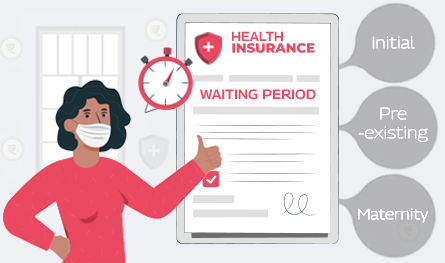
When you can ensure the well-being of your vehicle right from the beginning with vehicle insurance, then why gamble with your health? Rather than waiting for a physical setback, start maintaining comprehensive health insurance coverage well in advance to ensure security during needful times.
Health insurance policies are designed to offer financial protection and support during medical emergencies. They help you to focus on your treatment and recovery without any upfront financial worries.

However, every health plan has certain exclusive rules and regulations that explain the coverage's working strategy. You must know all these facts beforehand to avoid any misunderstandings.
One such technical jargon is the waiting period. You must understand it well to make an informed decision while purchasing.
The waiting period refers to the specific tenure during which the insured individual cannot raise any claim for certain typical issues as per the terms of the plan chosen. To fulfil those claims, you need to wait for a predetermined period. This period begins from the date of policy commencement.
The waiting period refers to the tenure during which the policyholder cannot file any claim depending on the terms and conditions of the plan chosen. This tenure begins right after policy commencement.
Most insurers maintain an initial cooldown period of 30 days, during which no claim is entertained. Apart from this, there are specific waiting periods for specific ailments.
So, you must read the policy document well before finalising your choice after knowing all the terms and conditions well, and analysing if it fits your requirements.
While dealing with waiting periods in health insurance policies, you must note that these are classified into multiple variants based on various circumstances:
Health insurance providers often refer to this as the cooling or cooldown period. Most insurers usually maintain a cooling period of 30 days, within which they will not accept any claim. This is applicable for both emergency and planned hospitalisation. However, exceptions happen depending on the gravity of the situation.
While buying a health plan, you have to disclose whether you currently have any ailment and your general health status. If you have issues like thyroid, hypertension, diabetes, high cholesterol, etc., before purchasing a health plan, you need to disclose them correctly as PEDs/Pre-existing diseases.
Each health policy maintains specific waiting periods for each type of illness and this tenure varies with every insurer.
Pro tip: Try to seek plans with minimal waiting periods for every PED to enjoy optimum protection. This implies that you will enjoy coverage for those ailments without waiting for a long span.
Certain health issues, like osteoporosis and hernias, require long-term care. Most insurance providers allow coverage for these sorts of issues only after a stipulated waiting period, as per the terms of the plan.
Pro tip: Read the policy fine print to know the specific details of waiting periods for every ailment to get accustomed to the policy terms and avoid misunderstandings during claim settlement.
Depending on the terms of your chosen health policy, you can get built-in maternity coverage or through an add-on rider. Childbirth and maternity costs are quite high, about which you need not have to worry if you have this coverage.
Depending on the terms of your chosen policy, this waiting period usually ranges between 9 months and 4 years. If you are concerned about this coverage, you must clarify it with your insurer.
Pro tip: Depending on your circumstances, try to opt for a plan with minimal maternity waiting period. However, if you are purchasing too early and have a few years at hand before a family extension, then you can opt for a longer span.
Certain health insurance companies offer their customers the exclusive benefit of complimentary health check-ups. However, to avail of this facility, the policyholders often need to observe a waiting period, usually 1 year.
Pro tip: It is best that you complete the health check-up at the beginning of your second-year coverage.
An unforeseen accident can severely jeopardise both financial and emotional state. Considering the circumstances, the policyholder must be immediately hospitalised to continue with the treatment process without worrying about any waiting period.
Pro tip: Considering the gravity of the situation, insurers often waive the accidental waiting period.
Health insurance providers observe this waiting period clause to prevent misusage of the policy coverage. People may purchase a health policy after getting diagnosed with any ailment involving expensive treatment procedures.
Some people even tend to hide any diagnostic report and then buy a policy to receive PED coverage.
By maintaining these waiting period clauses, the insurance providers try to minimise such unethical behaviours.
Young and healthy? Find out which of these plans rewards you with lower premiums. Click here to check now!

Paybima Team
Paybima is an Indian insurance aggregator on a mission to make insurance simple for people. Paybima is the Digital arm of the already established and trusted Mahindra Insurance Brokers Ltd., a reputed name in the insurance broking industry with 21 years of experience. Paybima promises you the easy-to-access online platform to buy insurance policies, and also extend their unrelented assistance with all your policy related queries and services.
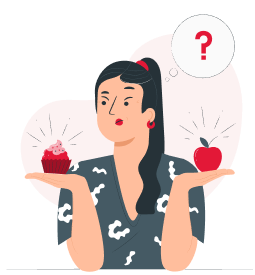
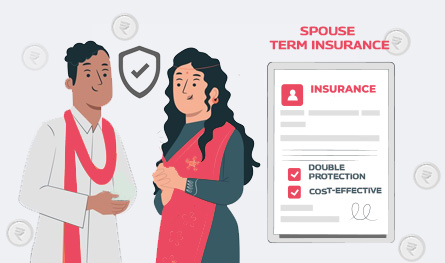
Marriage is built on shared dreams, countless compromises, and a commitment to protect each other through thick and thin. While love, trust, and communication form the emotional foundation of marriage, a little bit of financial planning doesn’t hurt either. This is exactly where spouse term insurance steps in — a simple yet powerful way to safeguard your future together.

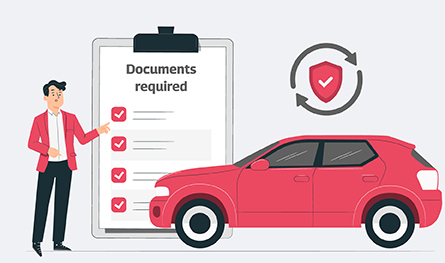
Renewing a car insurance policy before expiration is crucial for car owners. A car insurance policy is not only mandatory for driving a car on Indian roads but also important to ensure the continuous availability of benefits under the policy. Learn more in this blog

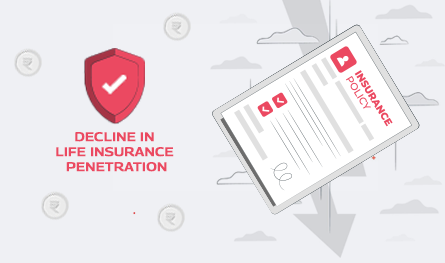
When was the last time you thought about getting a life insurance policy? If your answer is “I will get to it someday”, you are not alone. Despite India growing as one of the fastest expanding economies, life insurance penetration across the nation has remained surprisingly low. Life insurance penetration fell slightly to 2.8% in FY24, down from 3% in the previous year.

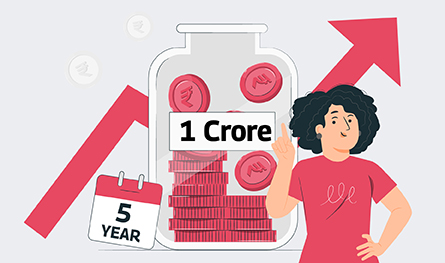
If you are looking at investment policies offering INR 1 Crore in 5 years, we talk about some excellent plans in this post to help you choose the best one and reach your goal. However, it is important not to get swayed. Doing proper research and taking advice from financial or insurance advisors is important. Learn about such investment plan in this post.
